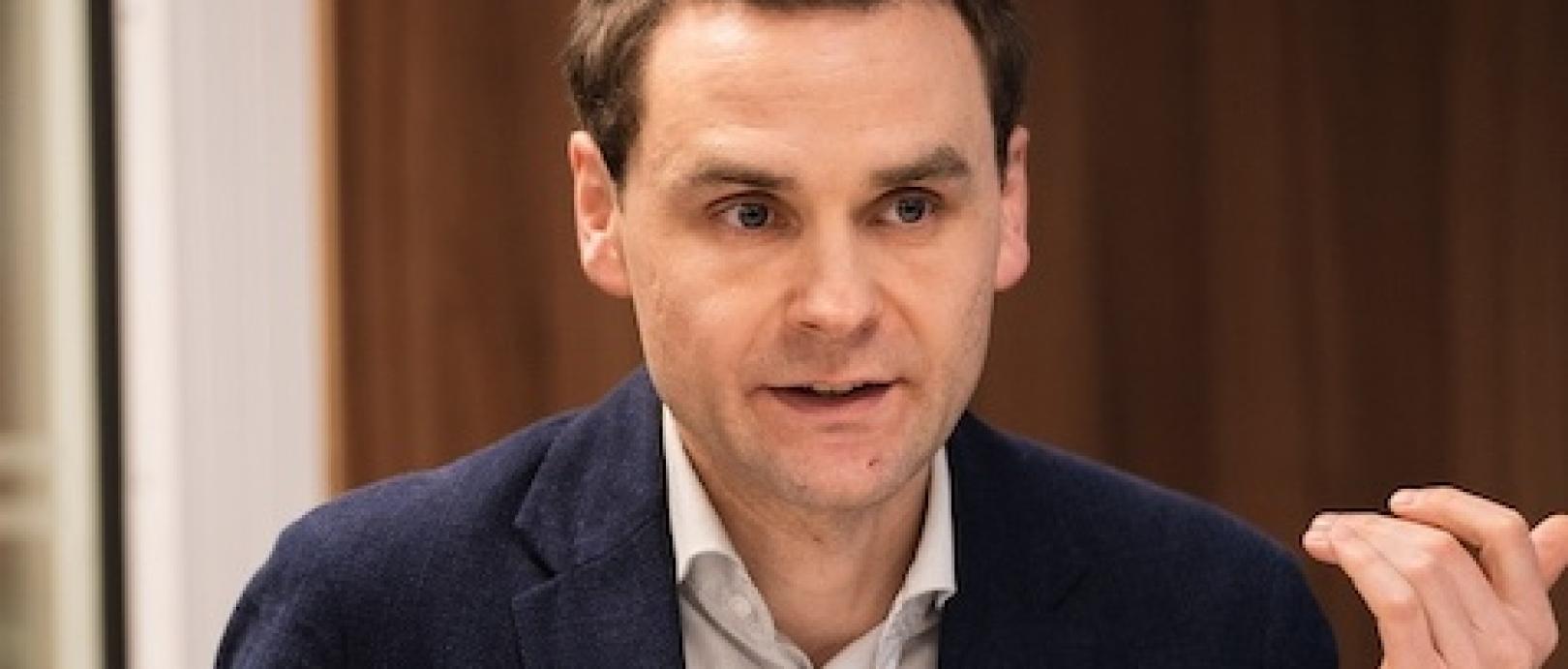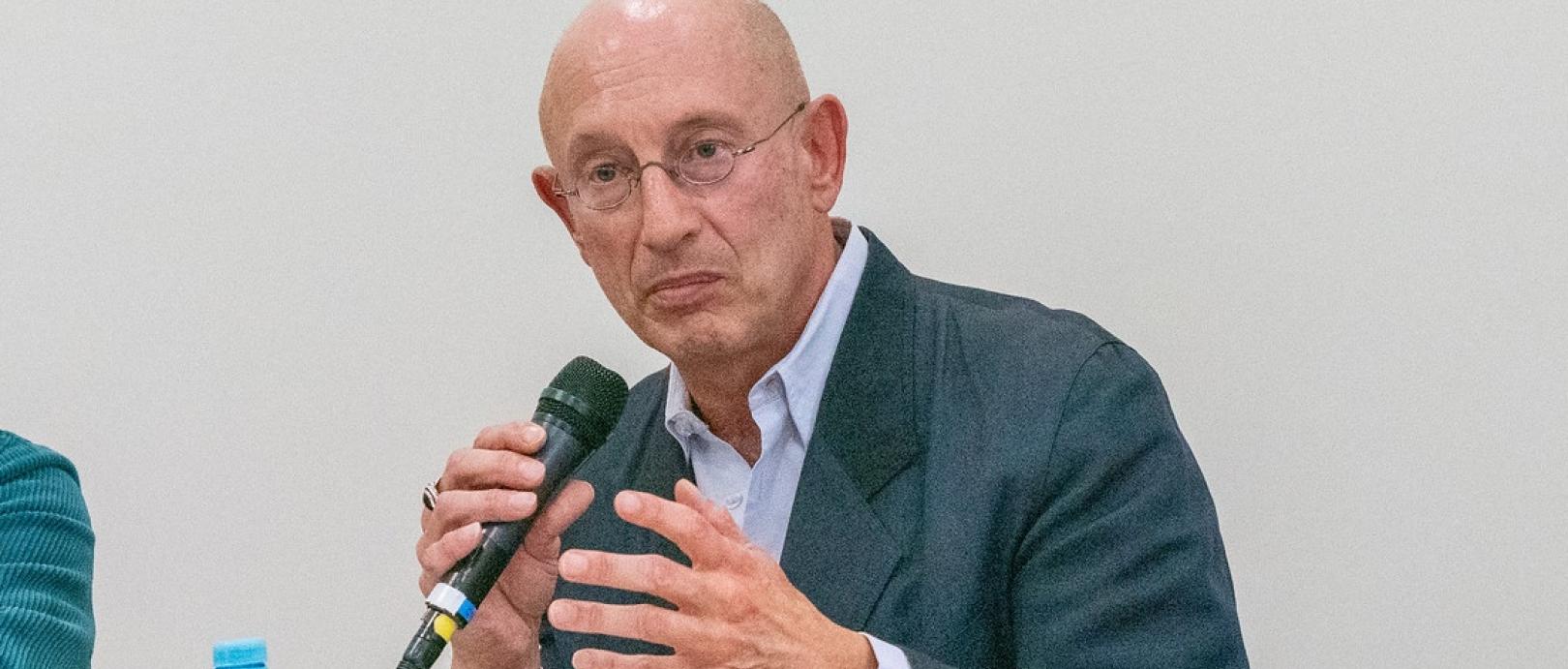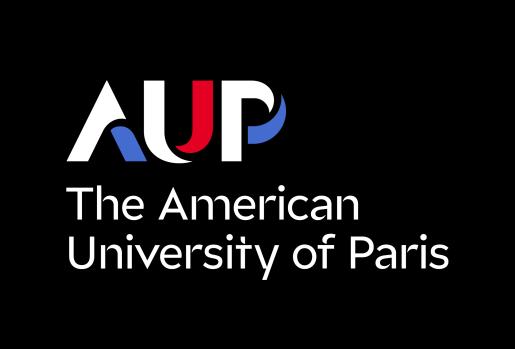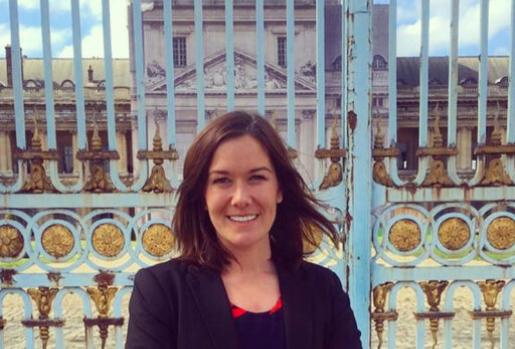MA in International Affairs
The MA in International Affairs offers a dynamic balance between rigorous intellectual preparation in the social sciences and hands-on professional training with international experts. Our graduates work at the community, national and international levels, contributing to the development of new ideas and strategies to provide peace and social justice to citizens across the globe.

In a complex world, where challenges to peace are multiplying, there is a crucial need for analytical thinkers able to address transnational issues in a creative and constructive fashion. AUP’s MA in International Affairs offers students rigorous interdisciplinary studies in international relations, international law, global ethics, global political economy, conflict resolution, civil society development, and human rights. Through these courses and our innovative modules and practicums, students interact with leading scholars and practitioners from around the world in a dynamic learning environment.
In addition to courses from AUP’s master's programs in Global Communications, as well as Human Rights and Data Science, students have access to prestigious institutions of higher learning in Paris, including the French War College. With an innovative mix of academic training and practice, graduates are exceptionally well-prepared to meet the international affairs and diplomatic challenges of our time.
Masters in International Affairs
- Duration 3 Semesters
- Entry time Fall or Spring
- Tuition and Fees €43,776
- Language English
-
Overview
The MA in International Affairs is a 3-semester program that offers an exceptional opportunity for you to explore Paris’s multicultural landscape and central role in international politics and policymaking. The program balances theoretical mastery with hands-on, project-based learning in conflict resolution and civil society activism. You will acquire a rigorous, well-rounded understanding of contemporary international affairs, enriched by study trips, internships and your thesis project.
Students taking part in the Ecole de Guerre practicum
Project Based Learning
AUP modules provide you with an exciting opportunity to work alongside visiting professionals to advance your skills and networks through intense three-day workshops. Our experts specialize in pressing global concerns such as humanitarian assistance, diplomacy, non-profit management, negotiation, legal problem-solving, health assessment in conflict zones, and human rights storytelling.
Taught by Neal Baer
The power of storytelling, particularly today with an abundance of dissemination platforms now available, can be harnessed to promote and improve public health, a fundamental human right. We will examine several ways stories can be told effectively to promote human rights and look at the data to support these efforts.
Taught by Simon Raiser & Bjorn Warkalla
This module will give you an introduction to negotiation theory and train your practical negotiation skills. The methodological approach is active learning and participant-centred, combining a theoretical and analytical basis with practical exercises, teamwork, group discussions and feedback.Taught by Sophie Meritet
A transition to sustainable energy is needed for our climate and welfare. Recent geopolitical and climate-related developments reiterate the need for immediate action to increase ambition for renewable energy deployment to achieve climate goals, increase energy security and improve affordability, as well as to ensure universal access to reliable and affordable energy.Taught by Karla Hoover
The duration and intensity of protracted conflict coupled with restricted donor funding has caused humanitarian actors to rethink their way of working. This module explores the role of humanitarian action, through a critical analysis of past and present interventions. It offers learners an understanding of humanitarian systems, and explores the connections between States, non-state actors, donors, organizations, and affected populations themselves. Finally, it explores some of the current challenges and invites participants to identify new avenues for humanitarian action in contemporary and future crises.Your capstone project builds on these project-based learning opportunities, encouraging you to engage with grassroots NGOs (on study trips to Cambodia, India, Morocco or Zambia, for example) or pursue a 0-credit internship with an international institution (UN, OECD, UNESCO, among others that our students frequent) to enrich the knowledge base for your thesis. Graduate students are eligible for competitive funding to pursue on-site fieldwork.
International Partnerships
As part of the program, you will have the opportunity to engage with the world at large through AUP's partnerships with the French War College and UNESCO (through the UNESCO Chair in AI and Human Rights). At the War College, for example, you may participate in Exercise Coalition, a two-week, polyvalent simulation of a military operation with civilian partners. Students play the role of international and NGO humanitarian aid workers on the ground in a conflict zone, working with mentors from the World Health Organization, the International Committee of the Red Cross-Red Crescent and the International Criminal Court to build a viable humanitarian aid plan that provides relief to the tens of thousands of virtual civilians caught in the crossfire.
The UNESCO Chair in AI and Human Rights brings you into the conferences and round tables of the UN as we work to shape policy for current and future technologies within a human rights framework. Other UN agencies, such as the OHCHR, also work with AUP faculty and students to reinforce the human rights framework while the University hosts the inter-university Faith for Rights (F4R) platform to promote freedom of religion and inter-cultural dialogue.
Learning Objectives
- Build an in-depth understanding of a cosmopolitan canon of academic and expert publications in international affairs, international law, public policy, transnational affairs, conflict resolution and civil society development.
- Develop clear analytical thinking as demonstrated by contributions to in-class discussions and argumentation as developed in written work including in the exploration of causality in your Master's thesis.
- Demonstrate initiative in selecting a range of rigorous academic sources for oral and written work and in the pursuit of original research for your Masters thesis.
- Gain a mastery of qualitative methodology (especially case study methods) and a basic understanding of statistical method.
Featured Courses
Conflict is endemic in two very different sets of circumstances: societies at war and societies that, at first glance, appear to be at peace. International attention tends to focus on the former, where violence is militarized and regional or international actors are called upon to mediate, and sometimes intervene, to end the conflict. Yet not all conflicts are hot; low-grade civil conflict may have an equally pernicious effect in stable societies whose vulnerable populations are at risk on a daily basis. This course examines the impact of both overtly violent and long-term, low-grade civil conflict on women. Women regularly suffer from violence ranging from trafficking to domestic beatings; forced marriage to prostitution. These individualized, intimate forms of violence sap the strength and adaptability of any society, as the community is unable to benefit from the full contribution of all members. Endemic poverty, lack of infrastructure, and susceptibility to disease characterize those pockets of the population exposed to low-grade civil conflict. In some cases, the entire female population is at risk, reducing the possibility for a nation state to compete effectively in the global arena.
This course examines the existing international legal framework for the protection of women’s rights and contrast the law with the nearly universal perception that the world of women is a private sphere, one where laws made in the public realm have less weight, or are more difficult to implement due to lack of witnesses, or worse, community acceptance of certain types of gender-based violence. But, civil society activists are making progress across the globe in combating insufficient implementation of women’s rights. This course explores their remarkably innovative strategies to achieve conflict resolution and the protection of women in challenging circumstances. Students work closely with online mentors from the Committee on the Elimination of All forms of Discrimination (CEDAW) in Geneva.
In addition to lectures and discussion, please note that considerable creative thinking is required for this course. The professor is interested not only in what the reading says on a specific subject, but also what new insights students can bring to their research topics. You will be asked to draft and submit briefs to the UN treaty body committees in response to calls for commentary on subjects related to the course.
Articulated within the emergence of the European nation-state and born in the context of the First World War and its aftermath, the discursive field of International Relations is organized around the constitutive concepts of conflict, anarchy, power, system, rule, law, and justice, and the practices of civil society and political economy. These concepts and practices organize, in turn, both the major schools of International Relations theory and contemporary methodological pluralism. This course interrogates these founding concepts from a philosophical perspective within the historical and discursive context of each major school: 1) from classical liberalism to international liberalism; 2) from classical realism to modern realism; 3) the ‘English School’ of IR theory (Bull); 4) Marxist tenets within international relations (from Karl Marx to international political economy); 5) Modern and Contemporary Critical Liberalism (Polanyi and Held); 6) The philosophical grounds of contemporary Constructivism.
Internships
During the course of your study, you are encouraged to build on your education at AUP by applying the knowledge and skills you have gained. A 0-credit internship provides you with the crucial connection between theoretical knowledge and real-world experience that can ultimately kick-start or transform your professional career.
In the past, our students have undertaken placements with companies and organizations such as the OECD, UNESCO, the International Chamber of Commerce (ICC), Bredin Prat, the US Embassy Paris, Pour Une Planete sans Frontieres, African Artists for Development, Ogilvy & Mather Paris, Elan Edelman S.A.S., United Nations, WLPGA, Turner Broadcasting.
Please be aware that AUP does not guarantee internship placements and that, in France, most internships are unpaid.
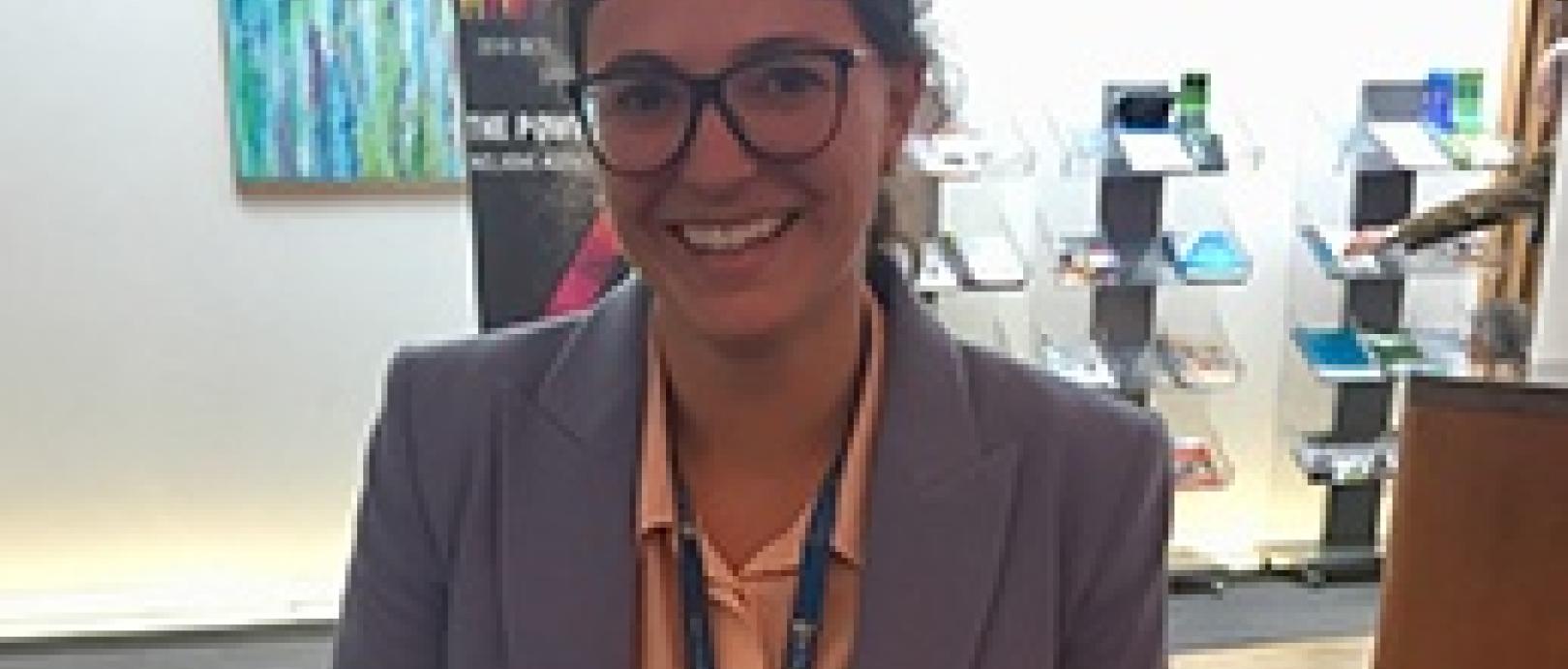
Intern Spotlight: Patricia
Patricia Molinos Ruperez G'18 reflects on her internship at the OECD.
#446CCFStructure
Fall Spring Fall 1 core course
2 elective courses
2 modules1 core courses;
1 elective course
3 modules
Thesis Methodology SeminarThesis* 16 credits 16 credits 6 credits * The length of the thesis may vary, however — many students choose to take additional time for this component.
Spring Fall Spring 1 core course
2 elective courses
2 modules1 core course
1 elective course
3 modules
Thesis Methodology SeminarThesis* 16 credits 16 credits 6 credits * The length of the thesis may vary, however — many students choose to take additional time for this component.

Graduation
Graduates of the MA in International Affairs join the University’s annual Commencement Ceremony in the beautiful Théâtre du Châtelet. The year of graduation is flexible and is based on students’ entry semester and projected program timeline.
-
Experiential Learning
Experiential learning plays an important role in all AUP programs. The curriculum of our IA program is particularly enriched by students’ own first-hand knowledge of, and experience with, the world. Learning to translate concepts from international affairs, conflict resolution and civil society development into real situations, where stakes are often high, involves witnessing and interacting with actual actors on site.
In addition to providing students with real-life experience in the fields they will integrate upon graduation, field studies also allow students the opportunity to network and learn the ropes of the institutions and organizations they may find themselves working for. Through contact with key professionals, students develop a sense of the breadth of career pathways available to them.
In addition to students in the MA in International Affairs, students from other graduate programs join the once-a-year Ecole de Guerre practicum to benefit from this practice-based approach to learning about international affairs, conflict resolution, communication and the role of NGOs.
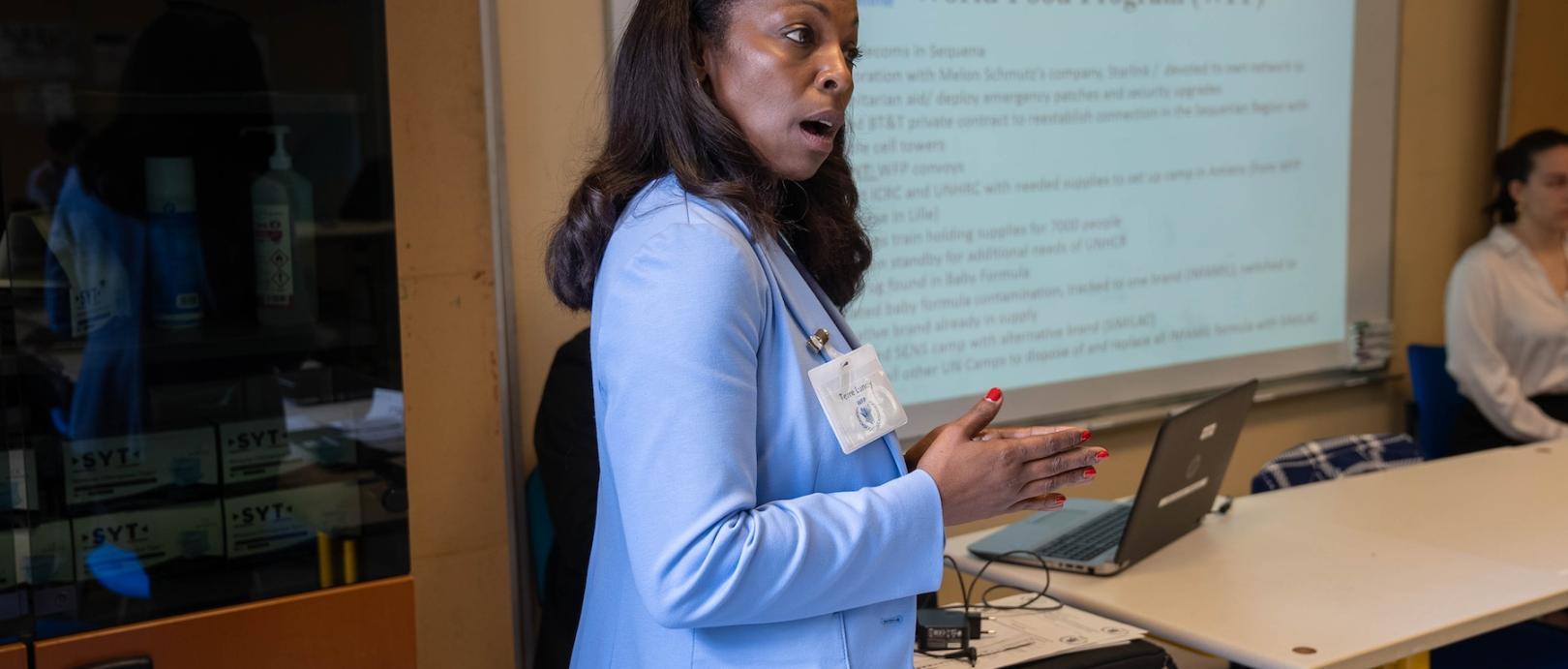
Ecole de Guerre Practicum: Paris
This interdisciplinary week-long practicum puts students in the role of various international actors during a real-time, evolving simulation of military intervention. Students are assigned the role of international and NGO humanitarian aid workers on the ground in the conflict zone.
#182757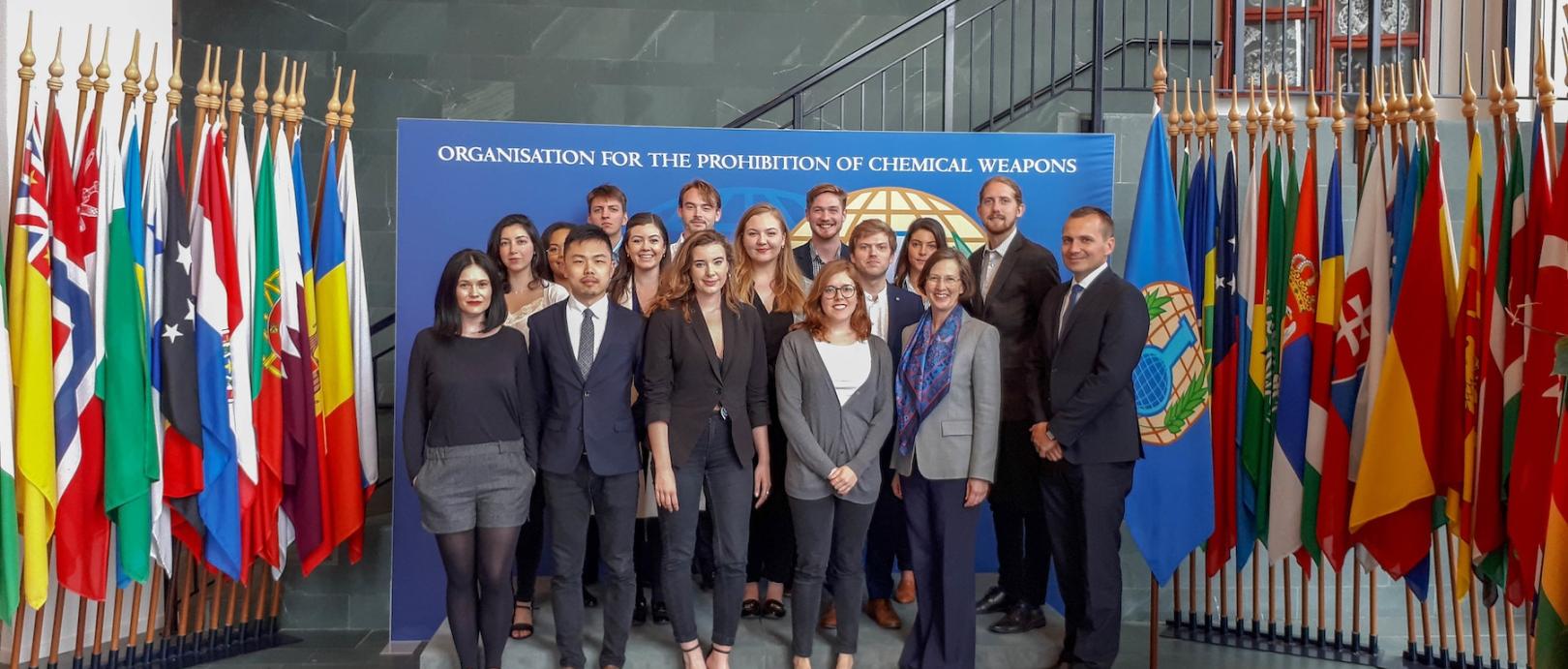
Summer Practicum: The Hague
The summer practicum to The Hague, in the Netherlands, allows students to visit a dynamic international legal hub, where they attend in-progress international criminal tribunals and meet expert judges and prosecution lawyers working in the courts.
#446CCFInternational Affairs students often participate in cultural trips offered by other programs, such as those in India, Fez and Cambodia. For example:
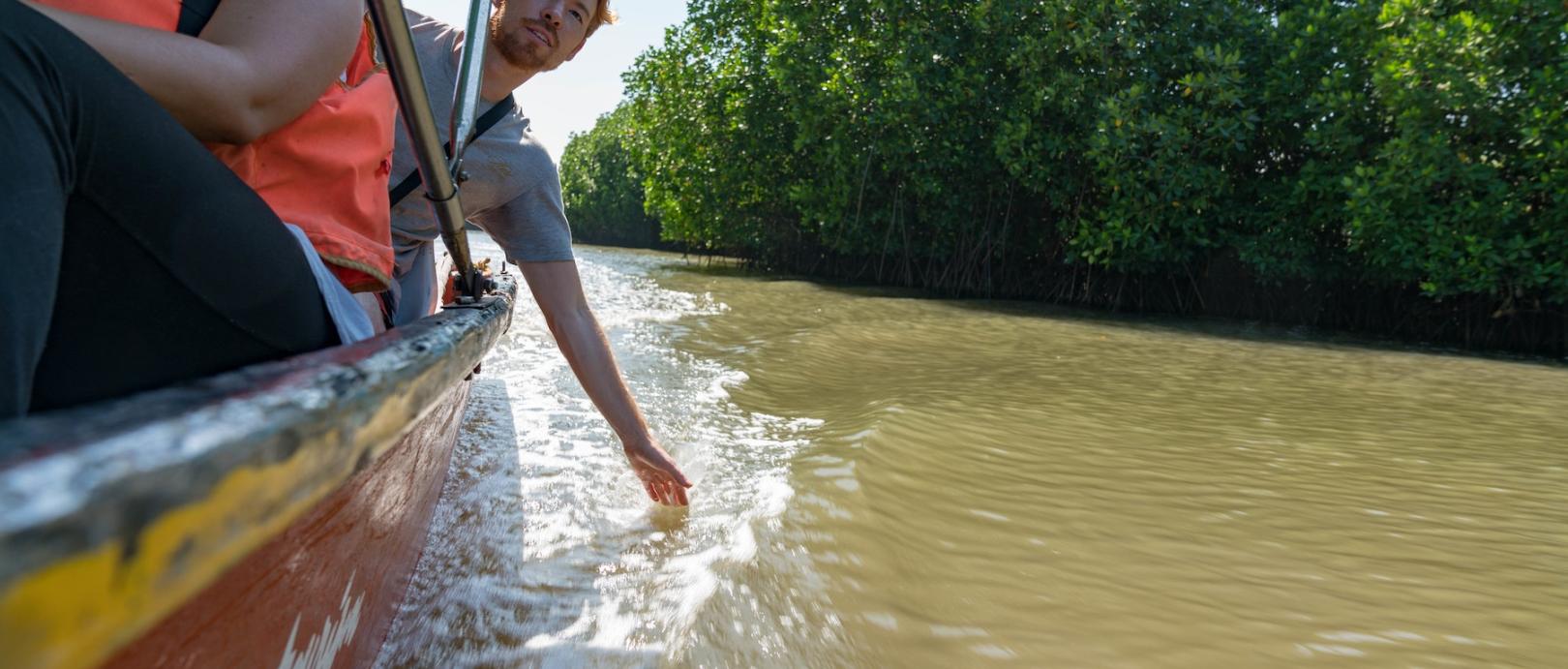
Sustainable Development Practicum: Auroville, India
This month-long practicum takes students to India over December and January to study how communication works when local government bodies, civil-society actors and NGOs put together sustainable development initiatives. Its interdisciplinary approach allows students to see individuals and communities in collaboration and conflict in the context of the international eco-community of Auroville in Tamil Nadu, south-east India. Students explore multiple fields, including microfinancing, health care and environmental management. On-site visits and team projects are central to the course.
#446CCF -
Faculty & Lecturers
Students in the MA in International Affairs program benefit from close interaction with expert faculty whose professional experience and academic expertise encourage extraordinary intellectual collaboration both in and out of the classroom. Students regularly form close bonds with their professors, who act as mentors and advisors as well as teachers.
The faculty of the International Affairs Department represent our programs’ multi-disciplinary and global approach to contemporary international affairs, law and diplomacy research. Many have lived and worked in multiple countries and speak two or more languages, bringing rich, diverse perspectives from their international experience with them into their teaching. Their research and expertise shine through a number of peer-reviewed articles, books and conference appearances annually.
In the 2022-23 academic year, for example, the nine full time faculty teaching core or elective courses produced 24 articles, essays or book chapters and delivered 60 workshops, conference presentations or invited talks. At the graduate level, our research assistantship program provides an opportunity for young scholars to work closely with their faculty mentors on publication projects in the discipline.

Susan Perry
Program Director Susan Perry has 30 Years of Impact and Innovation at AUP
#E30022Selected Achievements
Professors Claudia Roda and Susan Perry named UNESCO Chair in Artificial Intelligence and Human Rights (2024)
Carlson, Kerstin Bree (2022). The Justice Laboratory: International Law in Africa. Brookings Institution Press
Culp, Julian, et al (2022). Liberal Democratic Education: A Paradigm in Crisis. Brill mentis
Golub, P. (2016) East Asia's Reemergence. Cambridge: Polity Press
Majed, Ziad (2022). “La Syrie dans les enjeux régionaux et internationaux.” Syrie, le pays brûlé : le livre noir des Assad (1970-2021), edited by Catherine Coquio et al., Seuil, pp. 360–71
Perry, S. and Roda, C. (2017) Human Rights and Digital Technology. London: Palgrave Macmillan UK
Weill, S. (2022) and Laurent, S. “Entretien croisé : discussion sur le lawfare.” Raisons politiques, vol. 85, no. 1, 2022, pp. 117–25.
Chaudhuri, N. (2017) Community Mobilization for slum Upgrading through sanitation in Roma informal settlements in the Paris region. Frontiers Public Health, vol. 5, August 2017
-
Careers
Graduates from the MA in International Affairs go on to meaningful careers in diverse fields. The interdisciplinary and rigorous nature of the program produces professionals and scholars equipped to engage with and lead in a rapidly evolving global landscape.
- 0 %
-
Of graduates are "satisfied" or "extremely satisfied" with career progression so far

Will Bisbee G’18
Will Bisbee G'18 shares how the international experience he gained at AUP now enriches his work in U.S. national security.
#182757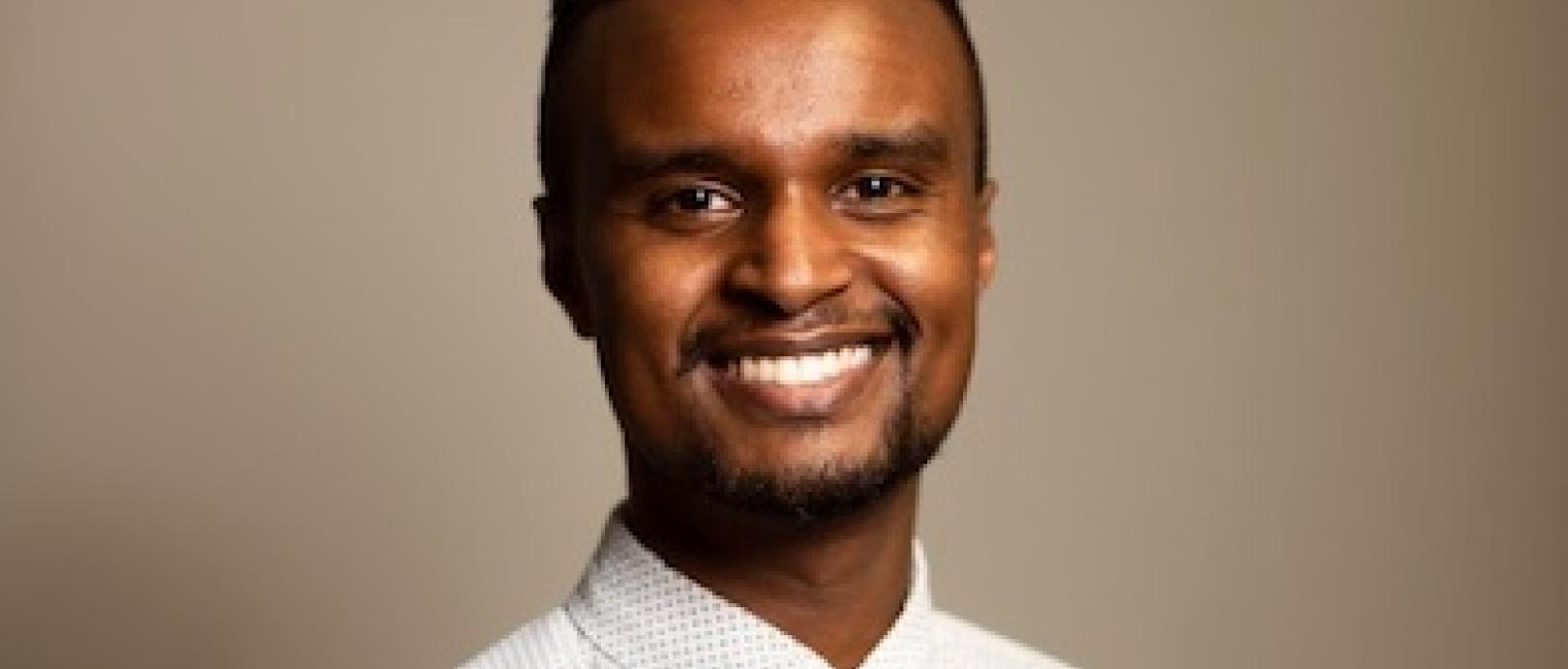
Bileh Dougsiyeh G’21
Bileh Dougsiyeh had already spent several years in international development when he decided to apply to graduate school.
#182757
Rose-Marie Bouboutou-Poos MA ‘08
Rose-Marie Bouboutou-Poos MA ’08 is a Paris and Senegal based highly accomplished journalist and writer.
#182757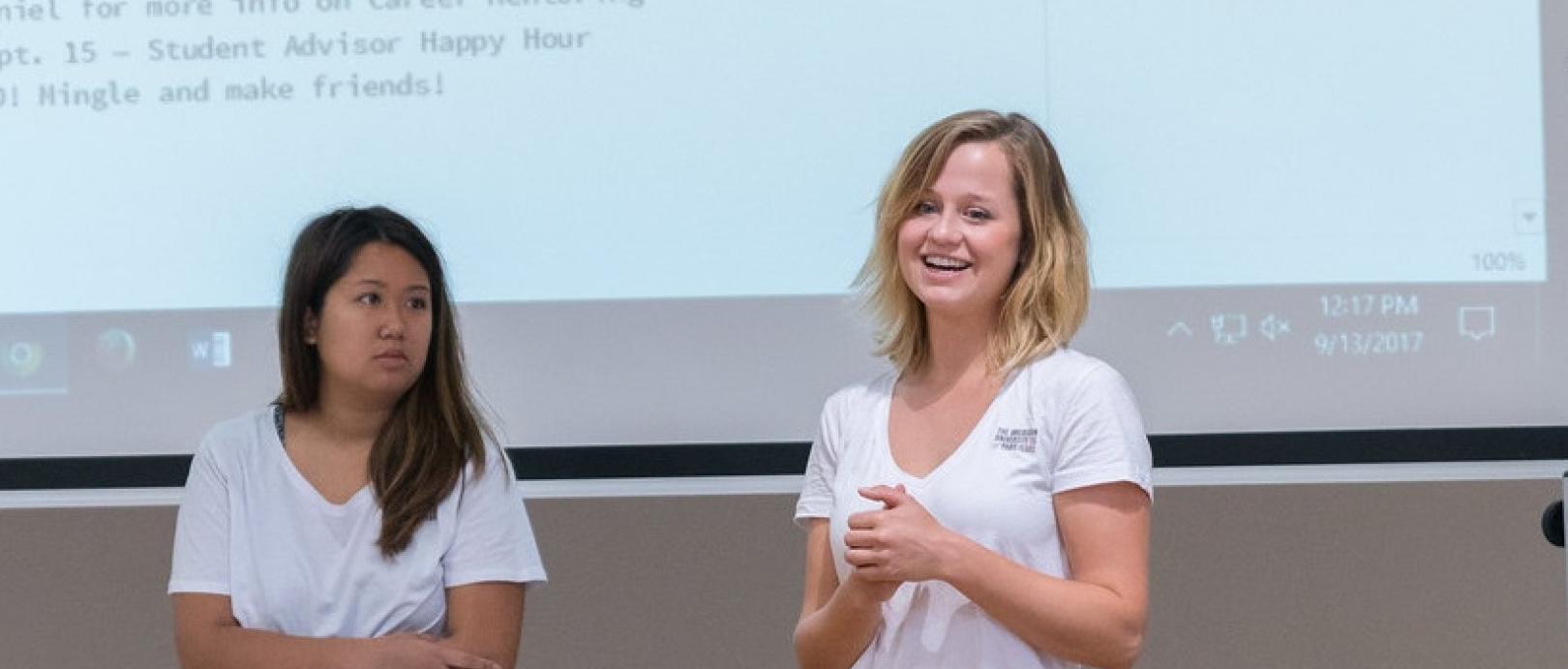
Rosie Brand G'18
With training in opera, mime and at a clown school in Paris, Rosie Brand G'18 might not sound like your typical MA in International Affairs candidate.
#182757
Jean Baptiste Matton G’15
Jean Baptiste Matton decided to apply to AUP’s MA program in International Affairs after graduating from the military staff course at the École de Guerre.
#182757Strong Graduate Employment
Research conducted in 2024 indicates that 95% of graduate alumni that graduated from The American University of Paris are in full-time employment, self-employed, entrepreneurs or pursuing further education. Our graduate programs provide academic excellence and practical knowledge that prepares you to successfully enter the international employment market after graduation.
Internships
During the course of your study, you are encouraged to build on your education at AUP by applying gained knowledge and skills. An internship provides you with the crucial connection between theoretical knowledge and the real world experience that can ultimately kick start your professional career.
In the past our students have undertaken placements with companies that include: OECD, UNESCO, International Chamber of Commerce (ICC), Bredin Prat, US Embassy Paris, Pour Une Planete sans Frontieres, African Artists for Development, Ogilvy & Mather Paris, Elan Edelman S.A.S., United Nations, WLPGA, Turner Broadcasting.
Changing the WorldGraduates from AUP's Master’s programs have made and continue to make waves in the real world. They have landed jobs in some of the world's most prominent companies and organizations, while others continue their education at distinguished graduate and PhD programs in their fields.
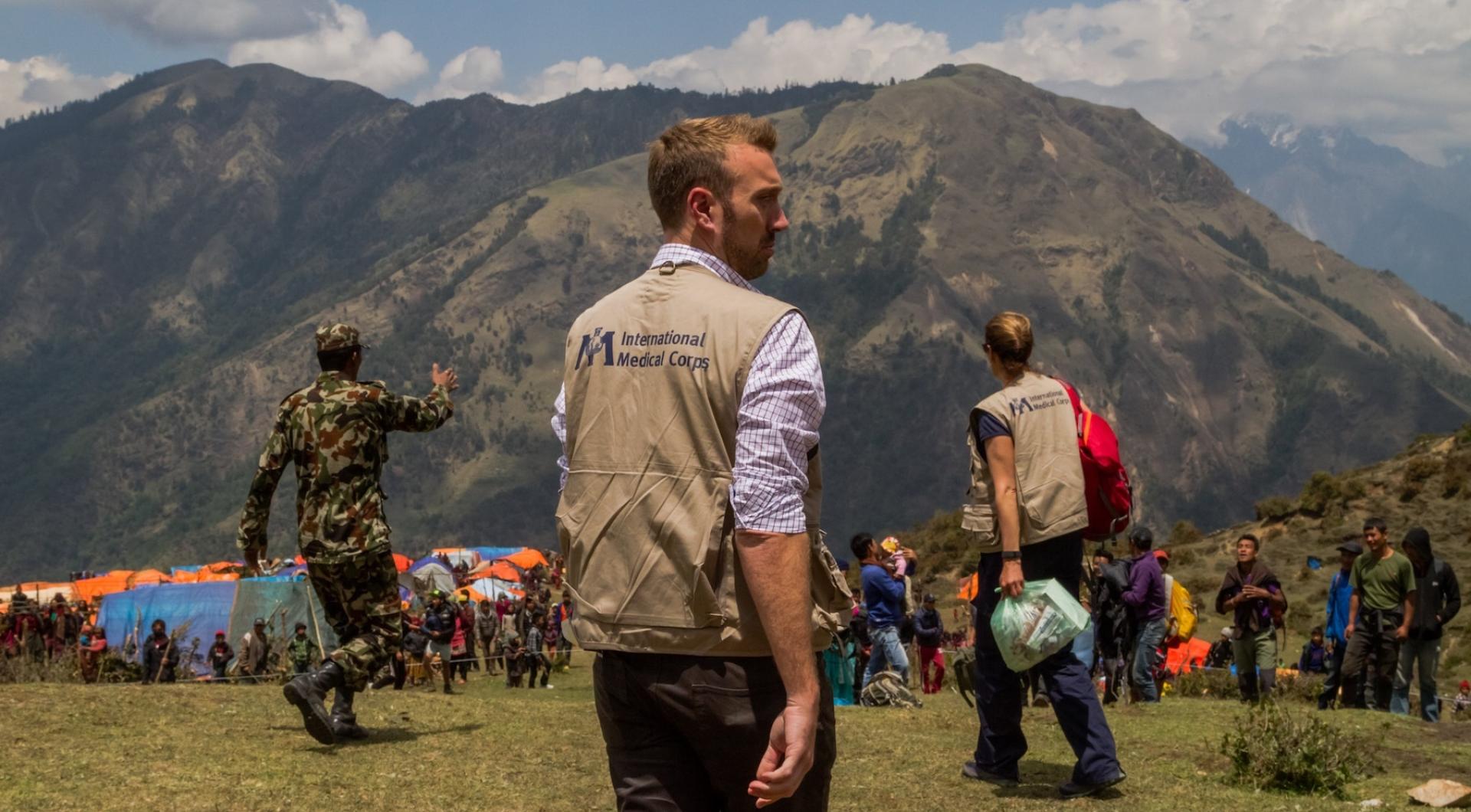 Career Support Services
Career Support ServicesAUP’s Center for Academic, Career and Experiential Advising (ACE) supports graduate students in defining, planning and developing their career pathway both during their degree and following graduation. From deciding on an internship to contacting alumni mentors working in relevant fields, students will find AUP’s career support services are a vital tool.

Employability
As a student you will benefit from hands-on fieldwork and research development as you gain professional skills throughout the duration of your studies. This, together with your rigorous academic training, can lead to jobs in companies, non-profits and government institutions around the world.
I now work in the Paris headquarters of the French armed forces as a military assistant to the general who advises the Chief-of-Staff on issues of military international affairs. It’s an exciting job for which I rely on the skills that I acquired and developed at AUP.

– Jean Baptiste Matton G’15 What Our Alumni Are Up To Now
The diverse career paths of our alumni community reflect the non-traditional approach to International Affairs education that you will experience as a student of our programs. Through dedicated mentoring and a balance of theory and fieldwork, our graduates are fully prepared to continue their journey in non-profits, private sector companies, international organizations and academia.
Recent Fulbright recipients have specialized in post-conflict civil society building in Ivory Coast; women's rights in India; and the impact of corporate social responsibility on climate change.
-
Admissions
AUP’s graduate programs welcome applications from motivated, high-caliber individuals who feel they will thrive in AUP’s international and dynamic environment. When assessing applications, we take a holistic approach to identifying the next cohort of Graduate Global Explorers, considering education, experience and general fit with AUP values and curriculum. Students can pursue our innovative program in Paris on the MA in International Affairs in either Fall or Spring.
Applicant Profiles
Applications for the MA in International Affairs are welcomed from graduates in the fields of international relations, development studies and other related fields. We also welcome those who have experience working with Non-Governmental Organizations, international agencies or other diplomatic bodies.
Tuition and Scholarships
Depending on the length of your graduate program, the cost will vary. Find out more about tuition and costs for the MA in International Affairs.
AUP offers need- and merit-based scholarships to graduate students. The majority of our financial awards range from 25 percent to 50 percent of tuition and the average award amounts to about 30 percent.
Application Process
- TOEFL - Internet Based Test (ibT) minimum score: 101. To have your results sent directly to The American University of Paris, use our institutional code 0866.
- Cambridge English - Advanced, or Proficiency level, minimum score: 185.
- TOEIC - Listening and Reading, minimum score 910. To have your results sent directly to The American University of Paris, use our institutional code 0866.
- IELTS - Academic Option, minimum score 7.0.
- Duolingo English Test: The test must include sub-scores for the 4 component elements. Minimum score required: 130.
- You have been living in Australia, Canada, Ireland, New Zealand, South Africa, the United Kingdom or the United States for at least two consecutive years and have recently studied in an all-English curriculum.
- You have studied for at least four years in an all-English curriculum in any other country, although we continue to reserve the right to request English test results from any applicant.
You can start your application process by creating an account on AUP’s Application Portal. You will be able to return to this page to finish and review your application prior to submission as often as you like.
Online Form
Each graduate program has its own application via the AUP Application Portal. You may only apply to one program.
The form will ask you to complete various details including contact details, background information and educational history. Your application will also require several supporting documents which can be uploaded directly in your online application in .pdf or .doc formats.
Transcripts
We require official transcripts covering all previous university coursework, including confirmation of an awarded bachelor’s degree or equivalent. All official documents must be submitted in English or French, or with a certified translation into one of these two languages. We recommend your transcripts demonstrate a minimum 3.0 cumulative grade point average (or equivalent).
Personal Statement
Applicants are required to submit a 500-word personal statement describing their reasons for applying to the program of their choice, drawing on relevant past undergraduate research or professional experience, as well as your career objectives.
Program Specific Items
Standardized tests, such as the GRE or GMAT recommended. Exemptions from this requirement are given to students from non-American universities and institutions, applicants with an M.A. degree, and mid-career applicants with a minimum of five years of professional experience following graduation.
Essay: In 500-words or less, describe your personal and professional objectives and how you anticipate that the International Management program at AUP will help you to achieve these objectives.
Writing Sample: Submit a short assignment or professional writing sample of 500-words or less that shows work that you are particularly proud of or that speaks to your beliefs or values in some way.
CV / Resume
Applicants should submit a C.V. or resumé including university and/or employment history; community involvement; professional, and/or university extracurricular activities; and recognitions and achievements.
Letters of Recommendation
We require two letters of recommendation from individuals well-qualified to provide us with first-hand knowledge about your potential for graduate study, with at least one letter from a university professor if you graduated in the last five years.
Veteran & Military Applicants: One of your letters of recommendation should ideally come from a Commanding Officer.
When you have entered the contact details for your recommenders to your application, AUP will approach them for their recommendation.
English
Students must demonstrate sufficient fluency in English. If English is not your first language, we require you to submit results less than two years old from one of the following tests:
The English language test requirement is waived if you meet one of the following criteria:
We reserve the right to request English test results from any applicant.
When you have completed your application, you will be asked to review the application and confirm that you are satisfied with the application before final submission. There is a non-refundable €75 processing fee to be paid at this point.
When AUP has received all of the documents (including responses from your recommenders), the Admissions Committee will review your application. In some cases the committee may come back to you for additional information. A review takes approximately four weeks from when the final documents are received.
When the Admissions Committee has reached its decision, an email will be sent to the address provided asking you to log-on to the Application Portal to view the decision.
Deadlines
We review completed applications in rounds throughout the year. We encourage you to apply early: priority for admission and financial aid is given to those who apply in the earlier rounds.
Fall Admission
Review Rounds Application Round Deadline Priority Admission by February 1st Regular Admission by March 31st Late or International Regular admission after April 1st (based on available spaces) Spring Admission
Review Rounds Application Round Deadline Priority Admission by September 15th Regular Admission after September 15th (based on available spaces) -
Requirements: MA in International Affairs (38 Credits)
Requirements and credit counts differ for the various Master’s programs at AUP. Graduate students must maintain a cumulative grade point average (GPA) of 3.00. Students with a GPA of less than 3.00 will be placed on probation. Only two grades of C (or C+) may be counted towards an M.Sc. degree. Students do not earn credit for grades below C.
ALL COURSES CARRY FOUR (4) CREDITS UNLESS OTHERWISE NOTED.
Please note that all requirements from previous years can be found in our archive catalogs.
Core Courses (8 credits)
Select two courses from the following list.
Course Code Course Name PO5005 Philosophical Foundations of International relations PO5006 Globalization and its Discontents PO5012 Civil Society: International & Comparative Perspectives PO5058 Conflict Management, Prevention & Resolution PO5072 US & World Affairs Modules (10 credits)
Course Code Course Name Module 1 PO5002MOD Modules (2 credits each) Module 2 Module 3 Module 4 Module 5 Elective Courses (12 credits)
Course Code Course Name Elective 1 Any graduate-level course coded LW or PO Elective 2 Elective 3 Thesis (8 credits)
Course Code Course Name PO5095INPR Thesis (6 credits) PO5099 Thesis Methodology Seminar (2 credits) * The length of the thesis may vary, however — many students choose to take additional time for this component.
Required GPA
Graduate students must maintain a cumulative grade point average (GPA) of 3.00. Students with a GPA of less than 3.00 will be placed on probation. Only two grades of C (or C+) may be counted towards an MA degree. Students do not earn credit for grades below C.
* The length of the internship or thesis may vary, however—many students choose to take additional time for these components.
- Overview
- Experiential Learning
- Faculty
- Careers
- Admissions
- Requirements
